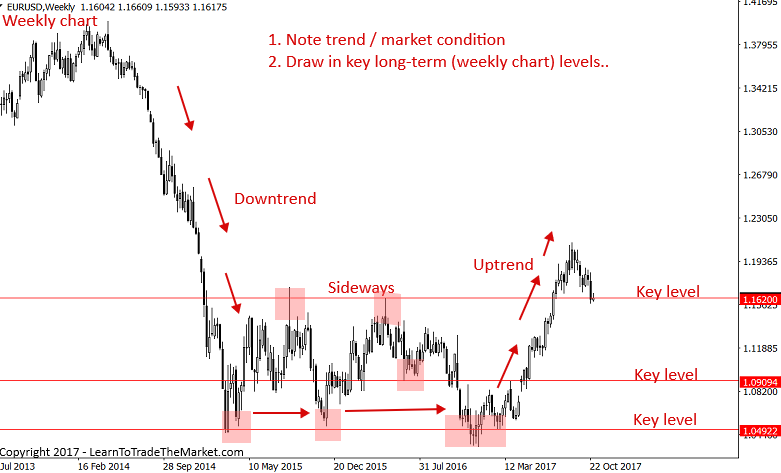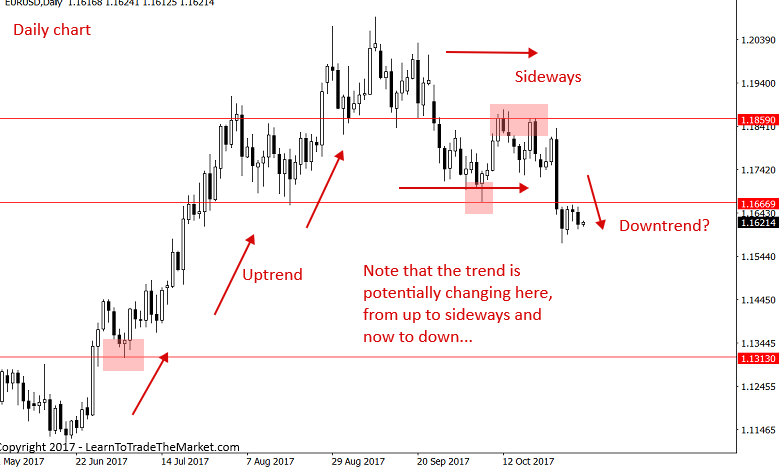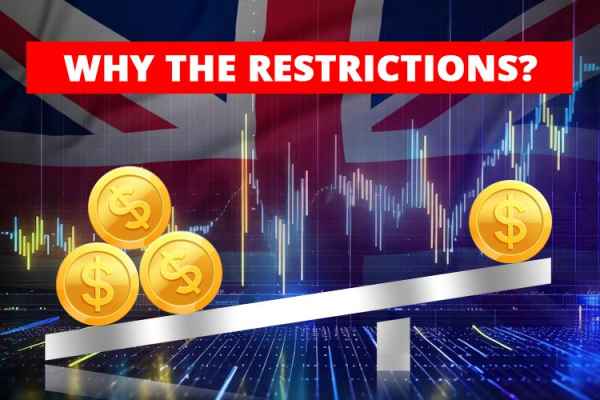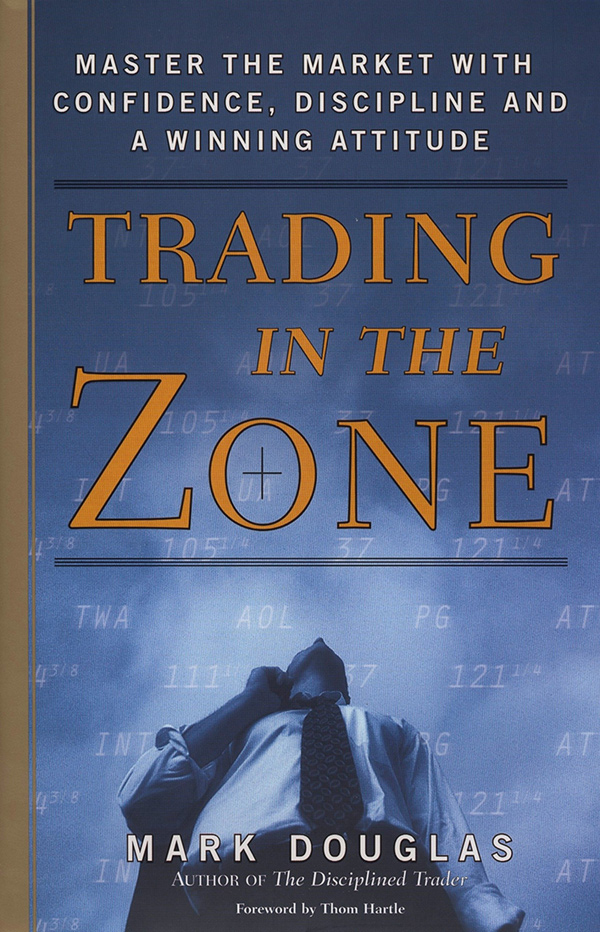The forex market is open 24 hours, five days a week. But is there a way to trade forex on weekends? Or, is it better to stay away from forex on weekends?
The forex market is known for opening 24 hours a day during weekdays and closing on weekends. To be more precise, it opens on Sunday at 5 p.m. and closes on Friday at 5 p.m. in New York time. During that period, the market is closed before it finally resumes trading again after 48 hours to start a new week. This happens because large banks and institutional traders – which contribute 93% of the total trading volume – only operate during working days and take some time off during weekends.
However, just because the market is offline, doesn't mean that you have to be. The weekend actually presents a good opportunity for traders to reflect and plan for the upcoming trading week. Some traders even like to do weekend trading and open positions on Saturday and Sunday instead of weekdays.
Is trading on weekends worth trying? Well, it's pretty much possible, but it's not necessarily recommended for any trader. To find out why, let's get to the explanation below.

Contents
Can You Trade Forex on Weekends?
Technically, some trades can take place during weekends because of the different time zones in the world, but this isn't what weekend trading is all about. Weekend trading refers to the chance to open trades on a Saturday or Sunday. This means you don't have to wait until markets open on Monday to execute your trade.
Most markets are closed on weekends, but some stay open. The most commonly traded assets to trade over the weekend are indices and cryptocurrencies. As for forex trading, the options are usually limited to major pairs like EUR/USD, GBP/USD, and USD/JPY depending on the broker. It is also worth mentioning that in some special cases, high-net individuals are able to negotiate with the broker to make trades on weekends. This typically happens if the trader expects big news to come out over the weekend or to hedge a position that they made during the week.
Should You Trade on Weekends?
Even though it's possible to trade on weekends, most traders prefer not to do it and just wait for the main markets to open on Monday instead. Here are some of the reasons why you may want to avoid trading on weekends:
- Higher Spread. Brokers that offer weekend trading typically charge much wider spreads compared to weekdays. This reason alone is actually strong enough to reconsider weekend trading.
- Low liquidity. Most traders don't trade on weekends so the market's liquidity is usually very low. This means, your trades will not be executed as accurately as they would be during the weekdays.
- Limited market options. As mentioned earlier, most markets are closed during the weekends. Brokers that offer weekend trading usually limit their markets so they can manage their risk easier. As a result, traders get fewer options to make a profit.
- Limited brokers. Not all brokers offer weekend trading due to the low demand and incredibly high costs. Keep in mind that opening markets on weekends means employing more people to monitor the situation and there are also additional costs related to infrastructure, such as power, uplink, etc. Most brokers don't find this profitable, so they rather choose not to offer weekend trading at all.
- Weekend gap risk. There is often a significant difference in price between Friday's close and Sunday's opening, which is also known as a gap. Gaps can make prices move in any direction, so they can amplify your potential profit as well as your risk. If you are not careful, price gaps can make you lose a lot of money in only a matter of a few days.
Weekend Trading Opportunities
If you can't stand to spend a day or two without trading, even on weekends, then you can use the time to plan for your next trade. In fact, the weekend is actually a perfect time to reflect on your past performance and prepare for your next.
During the weekdays, most retail traders are busy with their life and work. They have very limited time to monitor the charts and follow market news. Also, not everyone can afford to pay someone to manage their trades while they're away, so weekends provide a huge opportunity to dedicate more time to studying chart patterns, current market trends, and so on.
Apart from that, the weekend is also a good time to practice or test your strategies. A demo account is very handy in this situation since it's able to execute trades without risking any real money. You might even find it easier to analyze the charts and draw conclusions on weekends since the market is calmer. This is simply a great way to get a head start for the upcoming week.
The Weekend Trader Lifestyle by Niall Fuller
Niall Fuller is an expert trader with over 15 years of experience who truly believes in the power of doing market analysis on weekends. According to him, the best time to do any market analysis and make trading decisions is when the markets are closed. Instead of frantically checking the charts throughout the week and ending up making terrible decisions on the market, it's way more effective to do most of the market analysis on the weekends and only casually monitor the market during weekdays.
There are several benefits of doing this routine. Firstly, it can save up a lot of time since you only do in-depth analysis during the weekends. The charts that you see on weekends are also highly important, even more important than weekday charts because they contain information about the entire week, showing who won the battle between the bulls and the bears. Aside from that, this method is also a very good low-frequency trading approach. It can help you to gain more by trading less and allow you to improve your performance over the long run as well.
Moreover, Fuller's weekend market analysis routine is actually quite simple. He basically starts the analysis by using a weekly time frame to get a big picture of the market condition and a market outlook. After that, he breaks down the chart and uses the daily time frame to trade based on the market outlook that he obtained from the weekly time frame analysis.
Here is a detailed explanation of how Fuller conducts his weekend market analysis:
The first thing to do is open the charts and look at the weekly time frame to map out the key levels of support and resistance, swing highs and lows, event areas, and daily chart price action signals. This is important to get a good bird's eye view of the long-term market trend. Write down all of the key levels, along with your bias (bullish or bearish) and the chart condition (uptrend, downtrend, or sideways).
The next thing to do is to analyze the chart by using the daily time frame. Here's what you need to do:
- Draw any obvious support and resistance levels that probably were not obvious on the weekly chart.
- Identify the near-term daily chart trend in order to decide which direction you're going to trade in the upcoming week.
- Scan for any obvious price action signals for potential entries.
By using this method, you will get an idea of how prices might move in the upcoming weeks. You can use your analysis as guidance for your next trades in the near future. Remember that both weekly and daily time frames are equally important to make trading decisions. For instance, if the daily chart moves sideways, then you'll need to refer to the weekly chart to determine the direction of your next trade. If it's an uptrend, then look to trade long. But if it's a downtrend, then look for sell short.
Also, if there are signals from Friday's close, then you can plan the trade for the following Monday. If there is nothing just yet, then you'll have to wait for the daily chart to give you something useful for the following week.
The Bottom Line
There are many factors that make trading on weekends less profitable than trading during weekdays, such as wider spreads, lack of liquidity, limited market options, and more. So, instead of forcing yourself to trade in unfavorable conditions, it's better to use the time to evaluate your trades and plan the next strategy for the week after.
For trading evaluation, you may need to use certain applications to recap the market and how your trades went accordingly. In fact, there are specific apps fully dedicated to help you in this regard. Find out more about it in What are the Best Trading Journal Apps?

 Dedicated FREE FOREX VPS
Dedicated FREE FOREX VPS Free FOREX Virtual Private Server
Free FOREX Virtual Private Server MT4 Demo Contest, Get $500
MT4 Demo Contest, Get $500 Sign Up for an Account, Claim 60% Deposit Bonus
Sign Up for an Account, Claim 60% Deposit Bonus Free MT4/MT5 VPS 2024
Free MT4/MT5 VPS 2024 Send E-mail and Get Free Merchandise
Send E-mail and Get Free Merchandise $1K Refer a Friend Bonus for Pepperstone Pro clients
$1K Refer a Friend Bonus for Pepperstone Pro clients Maximize Your Earnings with 100% Deposit bonus
Maximize Your Earnings with 100% Deposit bonus Trade to Win, $5,000 Monthly Demo Contest
Trade to Win, $5,000 Monthly Demo Contest Claim 30% + 15% Deposit Bonus from LiteFinance
Claim 30% + 15% Deposit Bonus from LiteFinance










